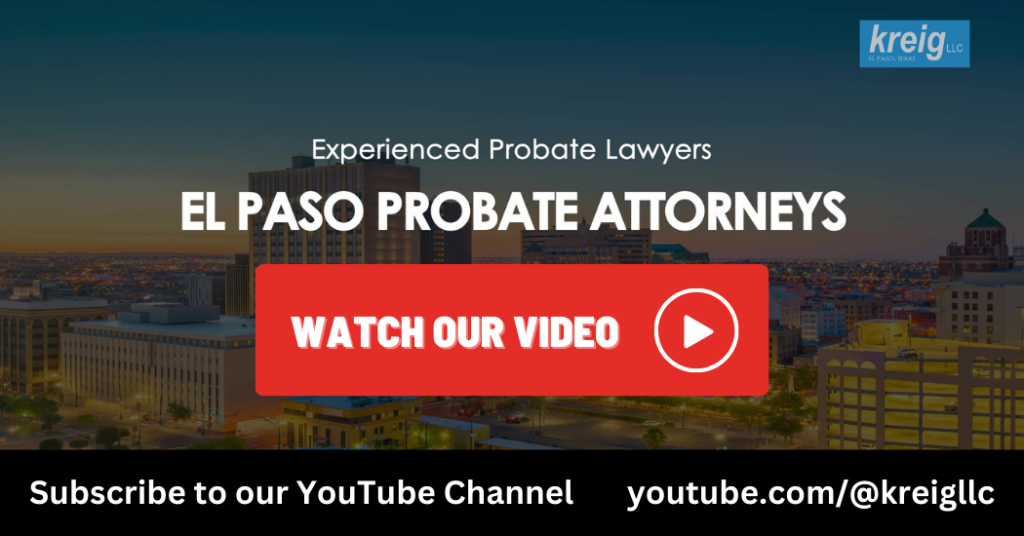If you are expecting a legal problem, you may take steps to move property to others. This may include buying property in the name of a third party.
Take for instance a pending divorce or demand letter for a lawsuit that you might lose. Or maybe it is an unpaid IRS debt that continues to grow due to penalties and interest. There are laws that address these types of transfers, particularly fraudulent transfer statutes.
But what happens if you die? Specifically, if you buy property and take title in someone else’s name in Texas, what happens when you die? Is the property you bought pulled into your estate and distributed according to your will (or Texas intestacy law if you have no will)? Or does the property belong to the other party?
This brings us to the concept of a Purchase Money Resulting Trust. The case of Qiong-Ying Duang Chang v. Qingha Julia Liu, No. 05-20-00977-CV (Tex. App. – Dallas [5th Dist.] 2022) provides an opportunity to consider this issue.
Facts & Procedural History
This case presents the very common scenario in which a Purchase Money Resulting Trust may apply (or may not, you have to continue reading).
This case involves a single property. The buyer purchased the property using his own money, but he did so under his mother’s name. The mother was incapacitated and under guardianship. The buyer died.
As you may have guessed, there was a dispute involving who owned the property.
The decedent’s mother argued that the property belongs to her under the presumption that it is a gift.
The administrator of the estate sought to have the property included in the estate. They argued for a Purchase Money Resulting Trust.
That is the dispute, i.e., gift vs. Purchase Money Resulting Trust.
About the Purchase Money Resulting Trust
So what is a Purchase Money Resulting Trust?
Under Texas law, a Purchase Money Resulting Trust can be established when one person pays for a property’s purchase price, but the property’s title is held by another individual. The crucial element is that the purchaser of the property does not intend to give it to the titleholder. This stops short of being a gift.
Note how this trust does not require a written trust document. If you say to someone, show me your trust document for your Purchase Money Resulting Trust, they most likely won’t be able to produce a document. That is because this type of trust is an equitable remedy that the courts can use, more of a theory than a document. It is sort of a judicial fix to make things right.
The description and rules stated above are an oversimplification. As with most things when it involves the law and Texas probate law, this type of trust comes with exceptions. One exception is when a parent pays the purchase price for property and places the title in their child’s name, a presumption of gift arises, and no resulting trust exists until this presumption is rebutted. This is a one way provision, namely, it starts with the parent and transfers to the child. It does not go the other way. This was the express holding in the court case.
In this case, because the decedent son bought the property with his own money, the property falls under the category of Purchase Money Resulting Trust in his estate, even though his mother is the titleholder. The mother would need to present evidence that her son intended to give the property to her upon death or incapacity.
Just to clarify and drive home the holding, if the transfer was the other way around, and the mother had purchased the property and placed the title under her son’s name, then the presumption of a gift can be made and not a presumption of trust.
Difference Between Resulting Trust and a Gift
With a Purchase Money Resulting Trust, the primary factor is the intention behind the property transfer. It arises when one person pays for a property’s purchase price, but the legal title is held by another individual.
Critically, the person paying for the property is not presumed to have intended to give it to the titleholder. Instead, a trust relationship is presumed to exist until proven otherwise. The beneficial interest in the property remains with the party who purchased it even though legal title may be in the name of another party.
In a Purchase Money Resulting Trust case, the burden of proof lies with the party claiming that the property transfer was a gift, not a trust. To establish it, the party must prove by clear and convincing evidence that the transfer was indeed a gift. This can be a challenging burden to meet.
In contrast, a gift is a voluntary and intentional transfer of property without the expectation of receiving something of equal value in return–there is no expectation of a trust. When someone makes a gift, they relinquish any claim to the property and grant it to the recipient without any strings attached. Gifts typically require the donor to have a clear intent to give the property away permanently.
In a gift scenario, there is no need to prove anything other than the donor’s clear intent to make a gift. The burden of proof generally rests with anyone disputing the validity of the gift, and they would need to provide evidence that contradicts the donor’s intention to make a gift.
Planning for Gifts or Purchase Money Trusts
There are times when you want to make a gift and when you want to make a Purchase Money Resulting Trust. Each has its time and place, given the right circumstances. Given the likelihood for disputes in this area, this is one that should be taken to take proactive measures and establish clear intentions when transferring property. Here are some tips for doing so:
1. Clearly Define Intentions:
- Purchase Money Resulting Trusts: When one party provides the funds for a property purchase, and the legal title will be held by another party (e.g., a parent buying a house for their child), it’s essential to document and communicate the intended arrangement. Be clear about whether the property transfer is a gift or if the payer expects a beneficial interest in return.
- Gifts: If you intend to make a gift, clearly communicate your intent to relinquish all ownership rights in the property. This can be achieved through written agreements, deeds, or written statements that unequivocally express your desire to give the property without any expectation of return.
2. Consult Legal Professionals:
- Purchase Money Resulting Trusts: In situations involving property transfers with the potential for PMRTs, consult with legal professionals experienced in property law. They can help you draft agreements or documents that specify the nature of the transfer and clarify the parties’ intentions.
- Gifts: When making significant property gifts, it’s advisable to seek legal counsel to ensure that your intent is properly documented and executed. Legal professionals can help you create legally binding documents that leave no room for ambiguity.
3. Record Keeping:
- Purchase Money Resulting Trusts: Maintain thorough records of financial transactions related to property purchases. This includes records of wire transfers, bank statements, and any written communications regarding the transfer’s nature.
- Gifts: Keep detailed records of the gift transaction, including any written agreements or deeds. These records can serve as evidence of your intent should any disputes arise in the future.
4. Estate Planning:
- Purchase Money Resulting Trusts: If you intend to provide property for a family member’s benefit while preserving your interest, consider including it in your estate planning. Consult with an estate planning attorney to structure your plan effectively and ensure your intentions are legally upheld.
- Gifts: For large or valuable gifts, incorporate them into your estate plan to avoid potential conflicts among heirs or beneficiaries. This allows you to outline your gift intentions clearly and allocate assets accordingly.
5. Mediation and Dispute Resolution:
- In cases where conflicts do arise despite your best efforts, consider mediation or alternative dispute resolution methods before resorting to litigation. These approaches can help parties find mutually acceptable solutions without the expense and stress of a court battle.
The Takeaway
The distinction between a Purchase Money Resulting Trusts and gift can dictate who gets the property when you die. As highlighted in this case, Purchase Money Resulting Trusts arise when one party pays for a property, but the legal title is held by another without an intent to give.
To avoid conflicts and legal disputes regarding Purchase Money Resulting Trusts and gifts, clear intentions should be defined and thorough records should be maintained.
Do you need help with a probate matter in El Paso or the surrounding area? We are El Paso probate attorneys. We help clients navigate the probate process. Call today for a free confidential consultation, 915-223-5015.
Our El Paso Probate Attorneys provide a full range of probate services to our clients, including helping with purchase money resulting trusts. Affordable rates, fixed fees, and payment plans are available. We provide step-by-step instructions, guidance, checklists, and more for completing the probate process. We have years of combined experience we can use to support and guide you with probate and estate matters. Call us today for a FREE attorney consultation.
Disclaimer
The content of this website is for informational purposes only and should not be construed as legal advice. The information presented may not apply to your situation and should not be acted upon without consulting a qualified probate attorney. We encourage you to seek the advice of a competent attorney with any legal questions you may have.





